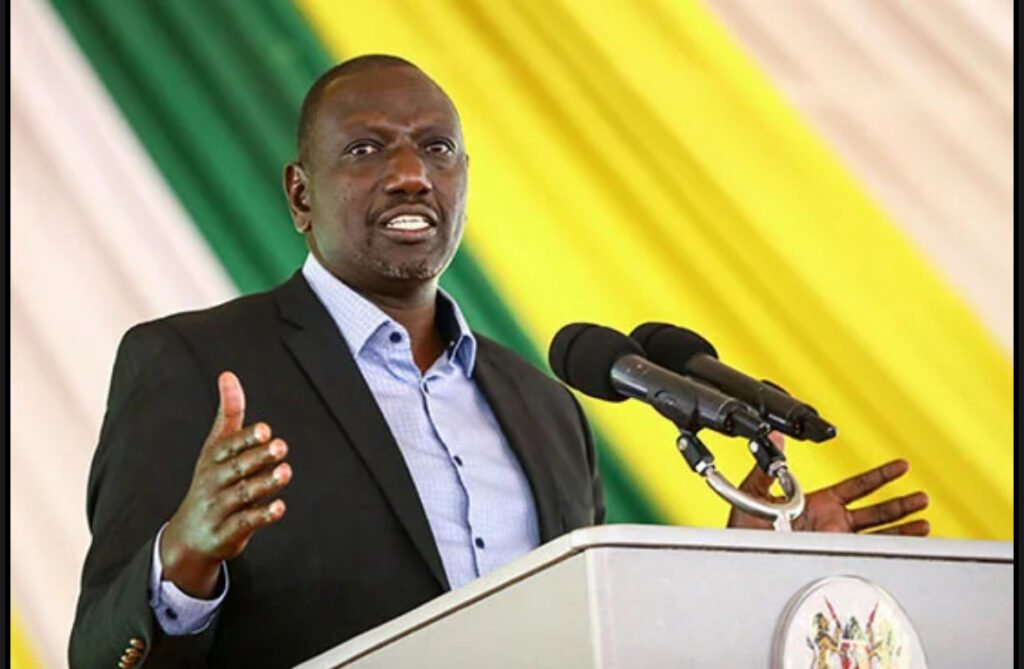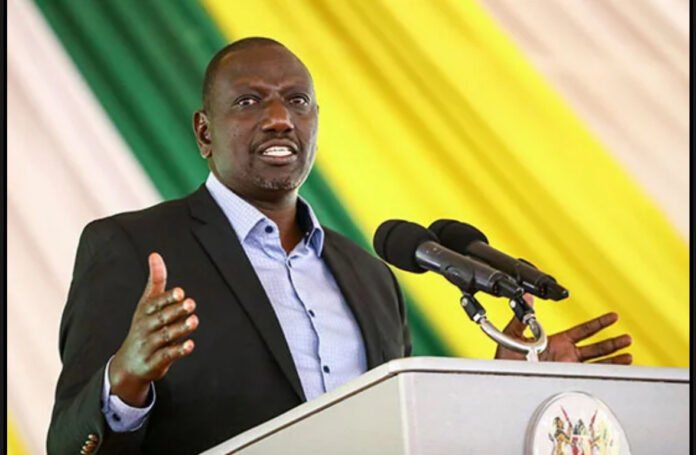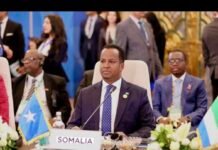By Horn Africa News Staff | Nairobi
Kenyan President William Ruto has come under fire after ordering security forces to shoot protesters in the legs to quell a recent wave of anti-government demonstrations. The directive comes as human rights groups and the United Nations condemn the police for using excessive force that has left dozens dead.

“Anyone caught burning another person’s business or property should be shot in the leg, hospitalised, and later taken to court. Don’t kill them, but ensure their legs are broken,” Ruto said during a national address on Wednesday.
The controversial remarks follow nationwide protests that have rocked Kenya, resulting in at least 31 deaths, over 100 injuries, and the arrest of 532 people, according to the Kenya National Commission on Human Rights (KNCHR). However, police figures put the death toll at 11.
The unrest erupted after the death of blogger Albert Ojwang in police custody last month, reigniting public anger over police brutality and worsening economic conditions. Monday’s protests, originally meant to mark Kenya’s long struggle for democracy, quickly turned violent across 17 of the country’s 47 counties.
Many demonstrators chanted “Ruto must go” and “wantam” — a term meaning “one term” — signaling growing opposition to the president, who was elected in 2022.
The United Nations expressed grave concern over the government’s response, with spokesperson Ravina Shamdasani accusing the police of using lethal force, including live ammunition, rubber bullets, tear gas, and water cannons.
Among those killed was a 12-year-old girl in Kiambu, near Nairobi, who was struck by a stray bullet while inside her home. In separate incidents, unidentified individuals looted hospitals, stole medical equipment, and assaulted staff, according to Reuters.
President Ruto defended the crackdown, arguing that attacks on law enforcement were equivalent to declaring war on the nation. “Kenya cannot and will not be ruled through threats, terror, or chaos. Not under my watch,” he said.
He accused his political opponents of sponsoring the unrest in a bid to unseat him through unconstitutional means. “This country will not be destroyed by a few people who are impatient. If you want to change government, wait for 2027,” Ruto declared.
Opposition leaders, however, deny any coup plot. Former Deputy President Rigathi Gachagua, who was impeached last year following a fallout with Ruto, dismissed the claims.
“Nobody wants you out of government unconstitutionally. We want to face you at the ballot in August 2027, so just relax,” Gachagua said.
Meanwhile, the KNCHR condemned both the violence and the government’s response. “The Commission strongly condemns all human rights violations and urges accountability from all responsible parties — including the police, civilians, and other stakeholders,” it said in a statement.
The protests have drawn support from youth frustrated by unemployment, rising taxes, and the high cost of living. Ruto acknowledged the economic hardship but said the issues predated his presidency and insisted his administration was working to resolve them.
“Why cause all the chaos during my time?” he asked rhetorically, cautioning Kenyans against being drawn into ethnic divisions. “Call me whatever names you want, but I will make sure there is peace and stability in Kenya.”
Rights organizations and religious leaders have called for an independent investigation into the killings, looting, and alleged use of unmarked police vehicles to transport armed gangs into protest zones.
In a joint statement, the opposition described the Ruto administration as a “hostile regime” and urged Kenyans to boycott businesses linked to the government.
“This regime is hostile. It cannot be reasoned with. It must be resisted. We will not rest. We will not retreat. We will not surrender,” the opposition vowed.
Kenya’s Chief Justice Martha Koome has warned that the escalating violence threatens the nation’s democratic foundations. it said in a statement.
The protests have drawn support from youth frustrated by unemployment, rising taxes, and the high cost of living. Ruto acknowledged the economic hardship but said the issues predated his presidency and insisted his administration was working to resolve them.
“Why cause all the chaos during my time?” he asked rhetorically, cautioning Kenyans against being drawn into ethnic divisions. “Call me whatever names you want, but I will make sure there is peace and stability in Kenya.”
Rights organizations and religious leaders have called for an independent investigation into the killings, looting, and alleged use of unmarked police vehicles to transport armed gangs into protest zones.
In a joint statement, the opposition described the Ruto administration as a “hostile regime” and urged Kenyans to boycott businesses linked to the government.
“This regime is hostile. It cannot be reasoned with. It must be resisted. We will not rest. We will not retreat. We will not surrender,” the opposition vowed.
Kenya’s Chief Justice Martha Koome has warned that the escalating violence threatens the nation’s democratic foundations.





